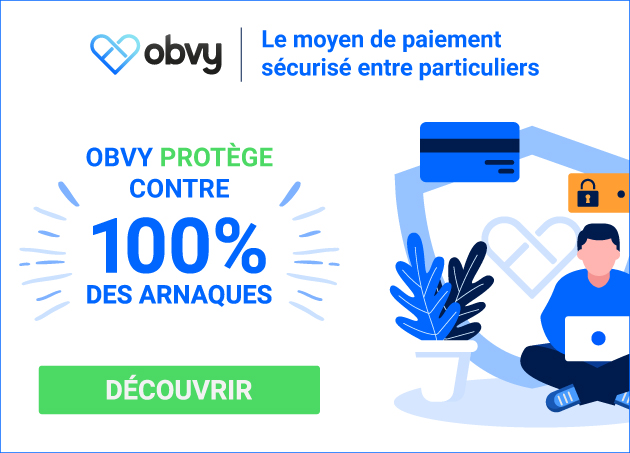Colissimo scam: find out how not to fall for it
All the best-known carriers are victims. Chronopost, Mondial Relay, DHL, FedEx... Colissimo couldn't fail to be affected! But don't panic, just a few tips will help you avoid them.
Find out how to protect yourself in less than 3 minutes by watching our video on the Colissimo scam:
Want to find out more? Read the full article below
The process is virtually the same for all carrier scams
As we explained with the Chronopost, DHL and FedEx scams, the modus operandi is very similar. The scammers' aim is to steal your personal or banking information. To do this, as we show you in the email below, they will send fake emails bearing the visual identity of the carrier concerned. However, there are a few details that should tip you off immediately.

The devil is in the detail
At first glance, nothing unusual. But take a look at this email:
- There is a spelling error and some of the syntax is questionable
- There is no visible tracking number, which is normally always the case
- There is a very short turnaround time for the operation (usually 48 hours).
- There is a file to download, which no carrier offers.
Also take a look at the email address, which is not an official La Poste Colissimo address. For example, the address "[email protected]" is a fraudulent email, but it can be misleading!
Other scam techniques exist
Other scammers will try to get you to call premium rate numbers or send text messages to premium rate numbers. Here is an example of a fraudulent email text you could receive:

These numbers start with 08. La Poste will never, ever ask you to call a premium-rate number. These numbers cost on average between €0.80 a minute or €3 a call, and the scammers will make you call back as many times as possible. As far as the code to be sent back is concerned, they will use it to access online services, which you will have to pay for. Similarly, never send a text message to a number, as carriers never ask for them.
Register now on Obvy and get £5 free with the code STOPARNAQUE
If you're not expecting a parcel, it's a scam
There's no point beating about the bush: if you receive an email like this and you're not expecting a parcel, it's a scam, full stop. Don't act on it, and block the sender of the email. You should also be aware that scammers have a great deal of imagination and will always try to find new approaches, so be extremely vigilant. What's more, scammers are particularly active with this type of scam in the run-up to the festive season, when lots of presents are sent and people's vigilance may be lowered because of the context.
Use Obvy for your distance purchases and sales between private individuals
If you buy and sell between private individuals remotely, you should know thatObvy is the most advanced payment method on the market for secure transactions between private individuals and includes a secure delivery system to prevent 100% of scams. If you have any doubts about emails during this type of transaction, use the delivery service between private individuals integrated into our payment system to ensure that everything goes as smoothly as possible. Identity checks, video proof against scams... Everything is done to ensure optimum security.

